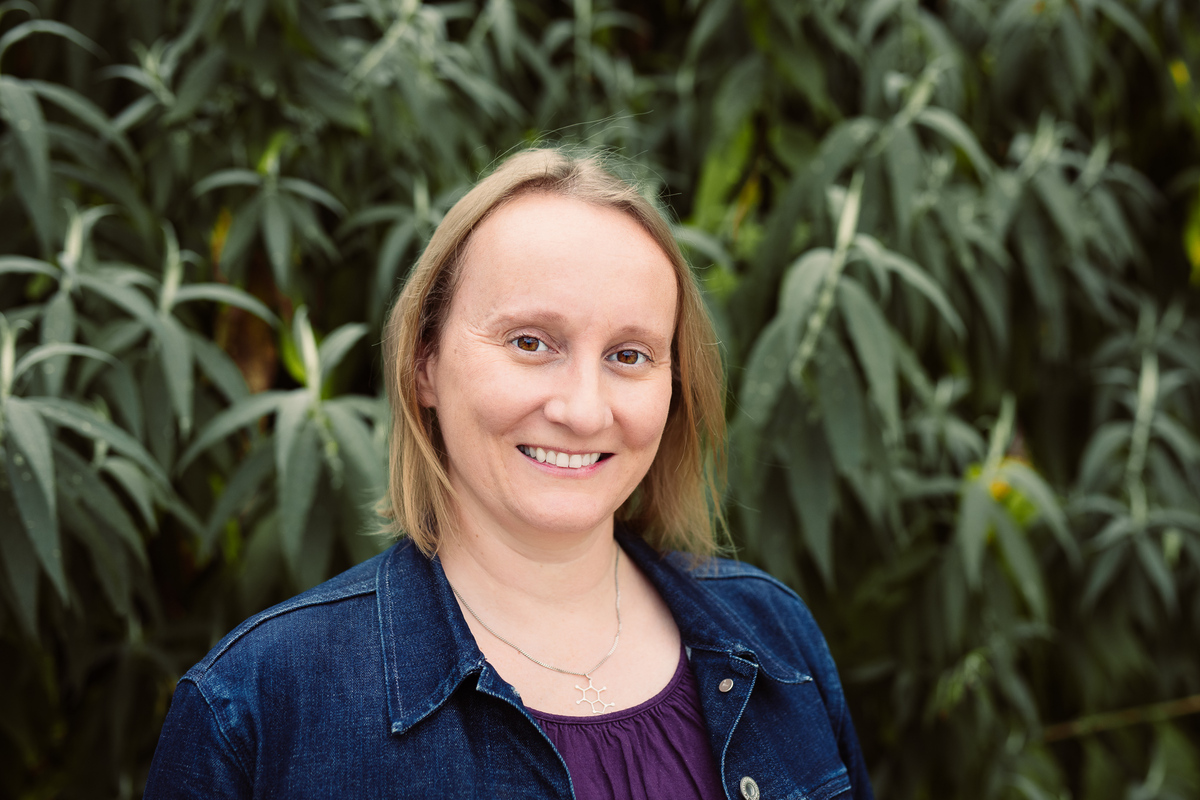
Eva Amsen
Eva Amsen is a freelance science writer and science communicator in London. She has written for Undark, Hakai, Nature, Forbes and several other publications. Eva started her writing career as a science blogger and recently revisited some of her older online pieces in the self-published book, “Hey, There’s Science In This”, which finds the hidden science in everyday topics. She also authored the book “Biology: 100 Ideas in 100 Words” for DK Books and the Science Museum. Eva is also a violinist and is skipping orchestra rehearsal to be at the UKCSJ conference.
Picture Credit: Donna Ford
Speaker: So you want to write a book?
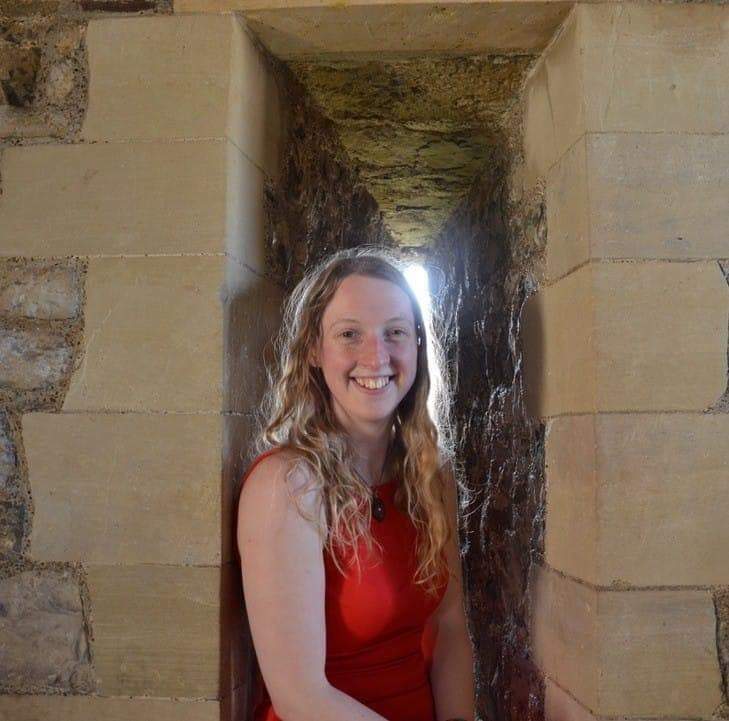
Victoria Atkinson
Victoria Atkinson is a freelance science writer and network lead for the Early Career Science Writer Network. She began her career in science journalism as an intern at Chemistry World, and has since become an established freelancer, working with publications including Live Science, C&EN, and Technology Networks. In October 2023 she founded the Early Career Science Writer Network which provides training and development opportunities tailored to early career professionals and offers a community space to chat openly with peers at the same level. Victoria has a DPhil in Organic Chemistry from the University of Oxford and specialises in chemistry, sustainability, and research culture.
Producer: The future of science journalism - how to adapt and thrive
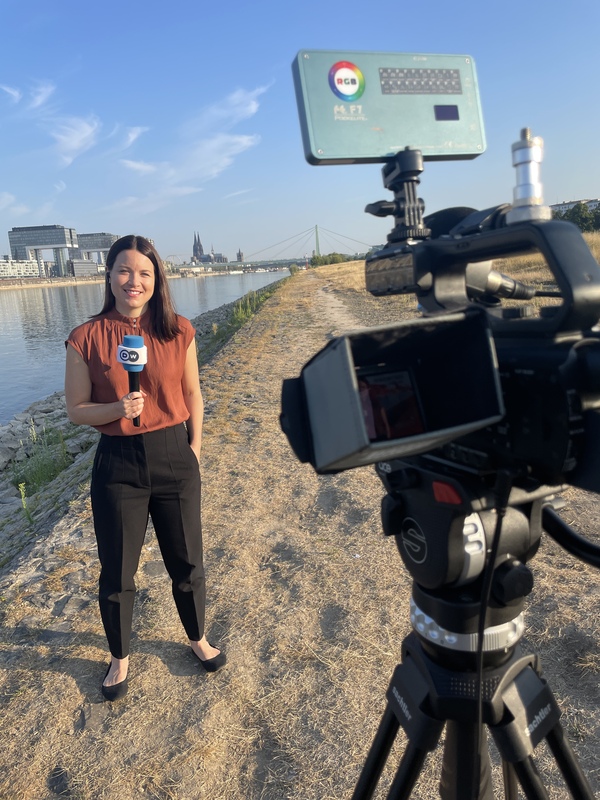
Sam Baker
After working in environmental communications in Alaska for a few years, Sam went back to school and completed a Master's in International Journalism at City, University of London in 2018. After working in London for Forbes, she was recruited to work for Germany's international broadcaster, Deutsche Welle (DW) and jumped into a career in science and environment reporting. Today, Sam is a senior producer on DW's newest podcast, Don't Drink the Milk. She's previously hosted and edited DW's Living Planet and continues to be involved with the show in a limited capacity. Sam has also produced episodes of the BBC World Service's CrowdScience since 2020. With these various assignments, she's had the chance to cover a global climate conference in Egypt and interview climate scientists on top of the Greenland ice sheet. Sam is also a podcast trainer for DW Akademie, creating a climate podcast training for reporters around the world last year. In 2022, Sam won an International Women's Podcast Award for an episode she made for the independent outdoors podcast, Out There. She's also done work for other outlets like NPR and Engadget. Sam's passionate about podcasting, reporting on environment and climate topics, and she most enjoys making long-form narrative audio documentaries.
Speaker: Pitching science broadcast media: UK vs Germany
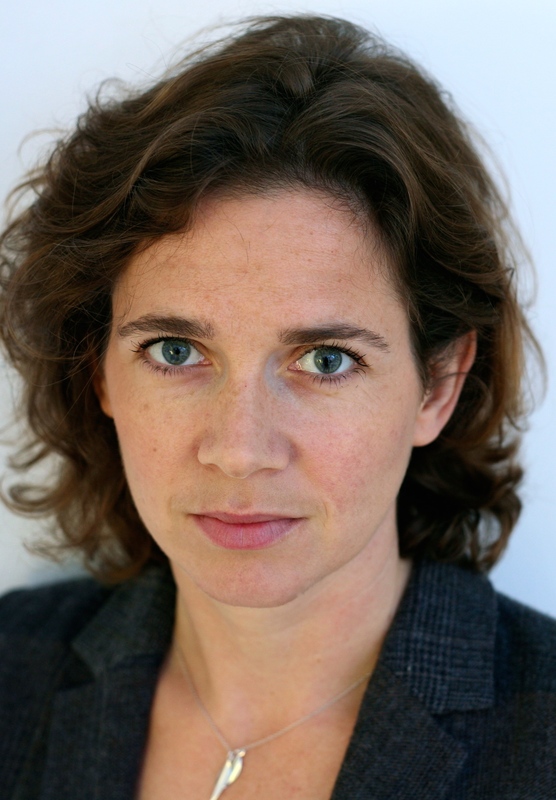
Kate Barker
Kate Barker has worked in book publishing for over 20 years as a literary agent, editor and ghostwriter. She runs her own literary agency, representing a wide range of novelists and writers of non-fiction. She was previously an Editorial Director for Penguin Books. Kate particularly enjoys working with experts to translate their work for a general audience.
Speaker: So you want to write a book?
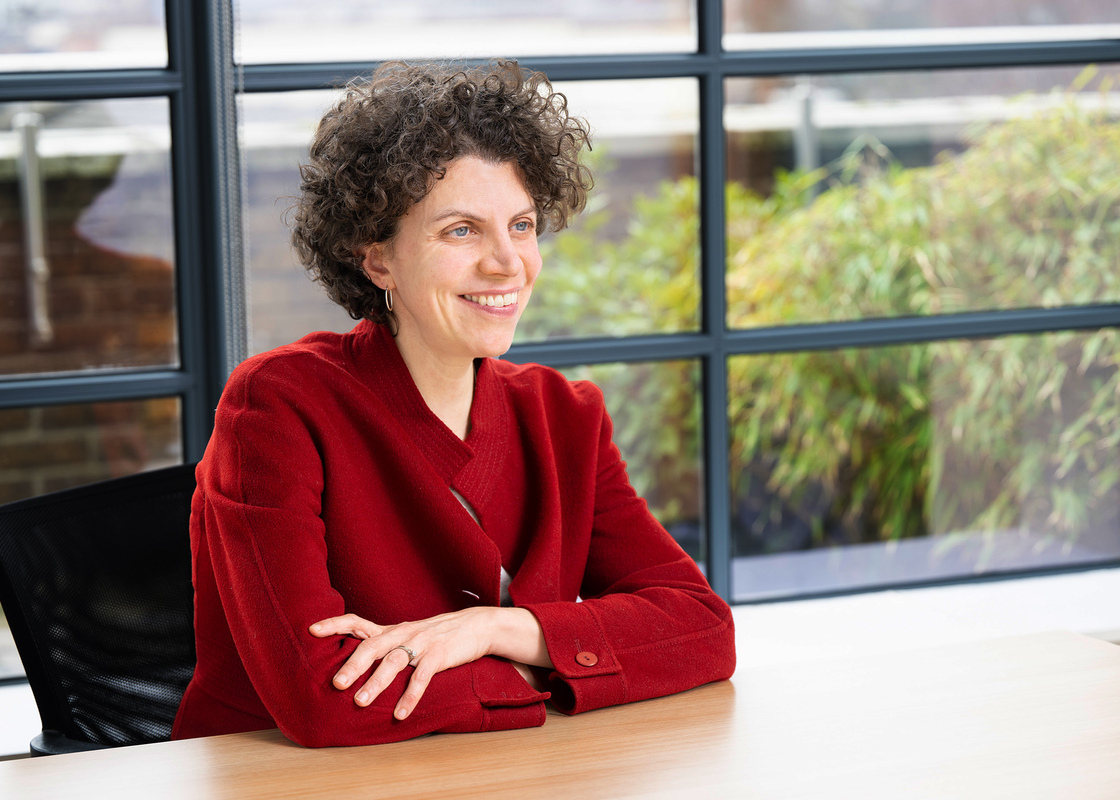
Celeste Biever
Celeste is chief news and features editor at Nature. She joined Nature in 2014 after working at New Scientist and
has master's and undergraduate degrees in chemistry from the University of
Oxford and a post-graduate diploma in journalism from City University of
London. She leads Nature's news and features teams.
Celeste oversees the tracking of source diversity in Nature’s news and features articles, project-managed Nature’s Racism in Science special issue published in October 2022, working with a panel of guest editors and oversees the Nature news team’s ‘Opening Doors’ internship for early-career journalists who can contribute to diversity, equity and inclusion.
Speaker: Diversity in science journalism: effective strategies for change
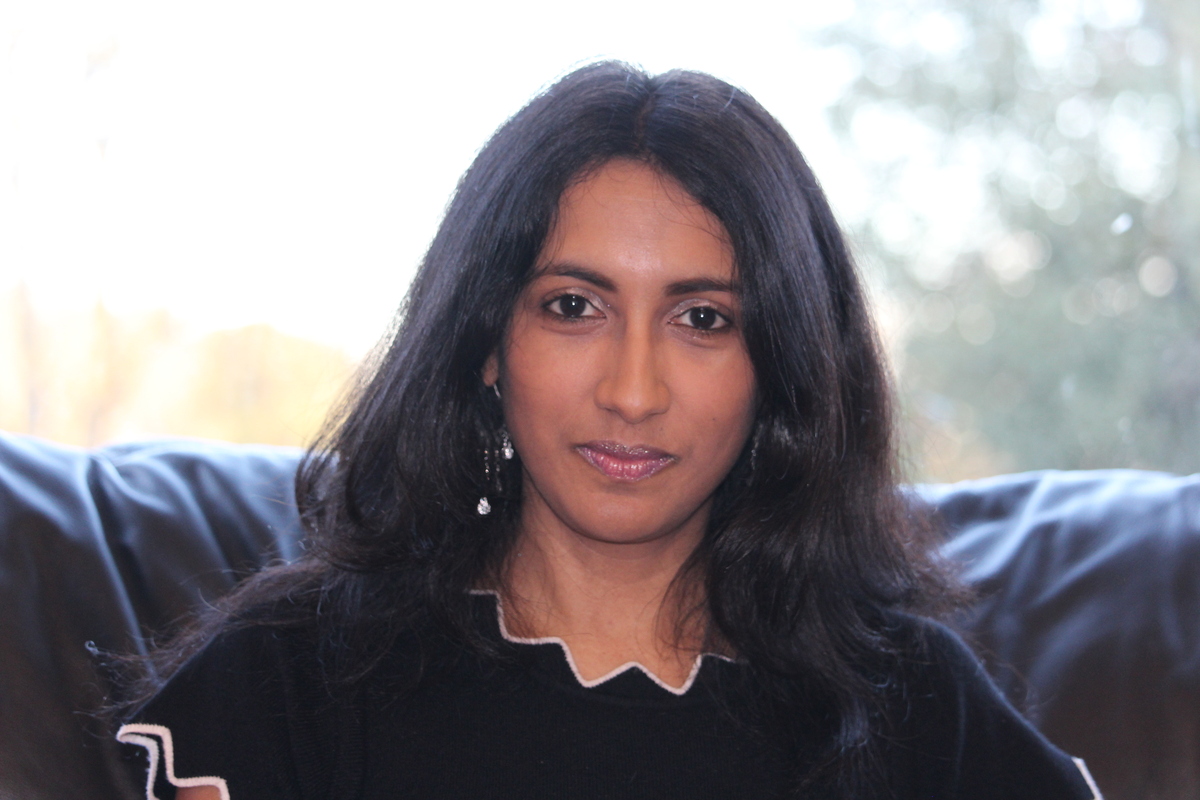
Shaoni Bhattacharya
Shaoni Bhattacharya is an award-winning freelance writer and editor. She was recently Acting Editor for Science and Technology at the Observer for its New Review section and has edited at a number of places including Nature and The Psychologist magazine. She is a former News Editor of New Scientist. As well as these outlets, Shaoni has contributed articles to BBC Future, BBC Sky at Night magazine, and the EU’s online science magazine Horizon.
Speaker: One story, three features: How three journalists tackled the same story for very different publications.
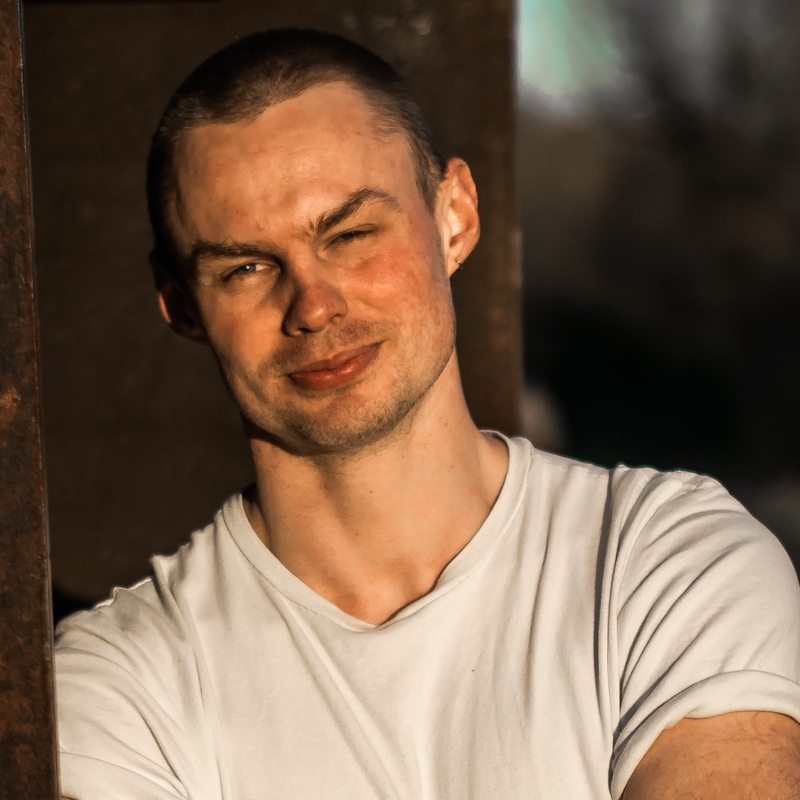
Ned Carter Miles
Ned Carter Miles is a freelance writer and audio producer for the Guardian, the Observer, Discover, the BBC, and others. His current interests include the science of emotion, interactions between new technologies and our senses, issues around drug development, and political influence in science policy and education.
Speaker: One story, three features: How three journalists tackled the same story for very different publications
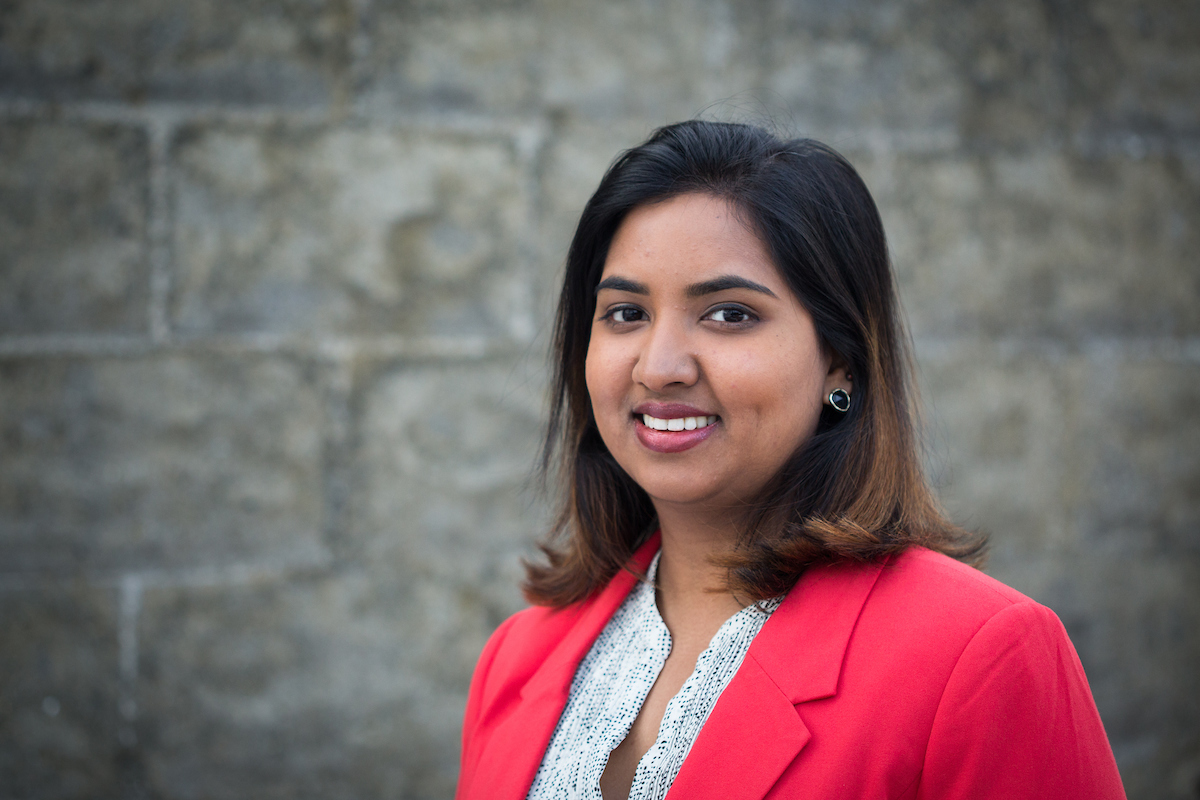
Shraddha Chakradhar
Shraddha Chakradhar is the deputy news editor for diversity, shaping coverage of issues at the intersection of science and race, gender, and inequity and helping oversee Science’s Diverse Voices internship program. She was most recently deputy editor of the Nieman Journalism Lab, where she wrote and edited stories on digital innovation in journalism. Her work experience includes being a reporter and internship coordinator at STAT. She was the writer of the publication’s flagship newsletter, Morning Rounds. She has previously served as an editor and reporter at Nature Medicine, where she covered cancer, infectious disease, diversity in biomedical fields, and more.
Shraddha serves on the boards of the nonprofit website the Open Notebook and the National Association for Science Writers, following a 3-year term as co-chair of NASW’s Diversity Committee. She helped launch the NASW Summer Diversity Fellowship for students and early-career journalists and the Open Notebook's Diverse Voices story series, which aims to examine the experiences, expertise, and perspectives of science journalists from communities that are underrepresented in science journalism.
She earned an M.S. in science journalism from Boston University and a B.A. in liberal arts (with concentrations in English and chemistry) from Murray State University.
Speaker: Diversity in science journalism: Effective strategies for change
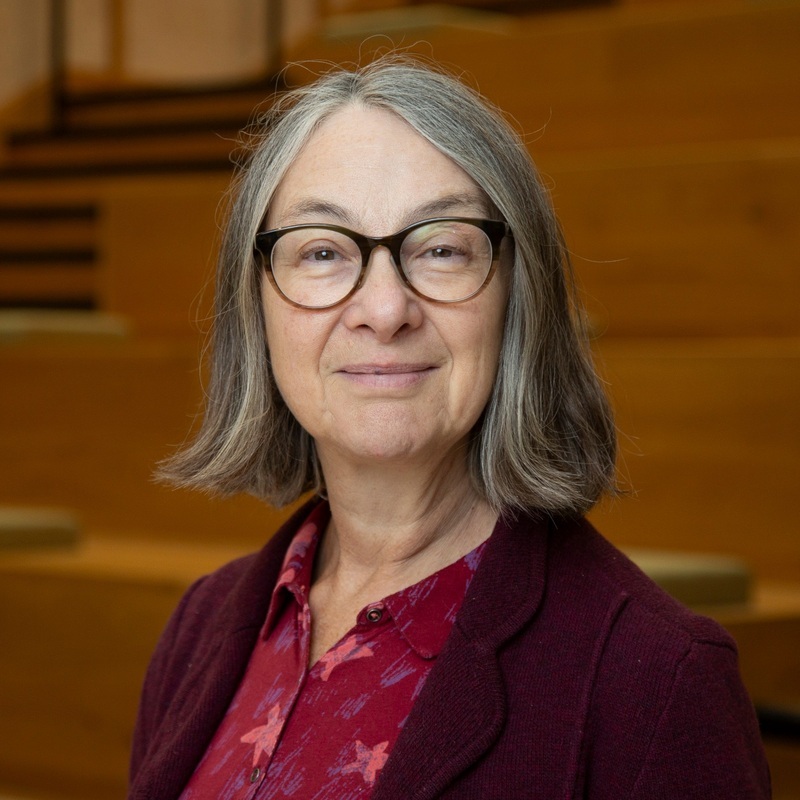
Deborah Cohen
Deborah was the Editor of the BBC Radio Science Unit for many years, where she was responsible for programmes on Radio 4 and the World Service such as The Infinite Monkey Cage, The Life Scientific, Inside Science, All in the Mind, Health Check and Discovery. She has lectured on science broadcasting to a variety of audiences, judged book and essay prizes and awarded grants for public engagement with science. She studied Physics a long time ago, is a Life Member of the ABSW, a member of the ABSW Board, and received an MBE for services to science and media in 2009.
Chair and Producer: The future of science TV, radio and podcasts
Chair: AI: Effective tools for science journalists or a source of fear for the future?
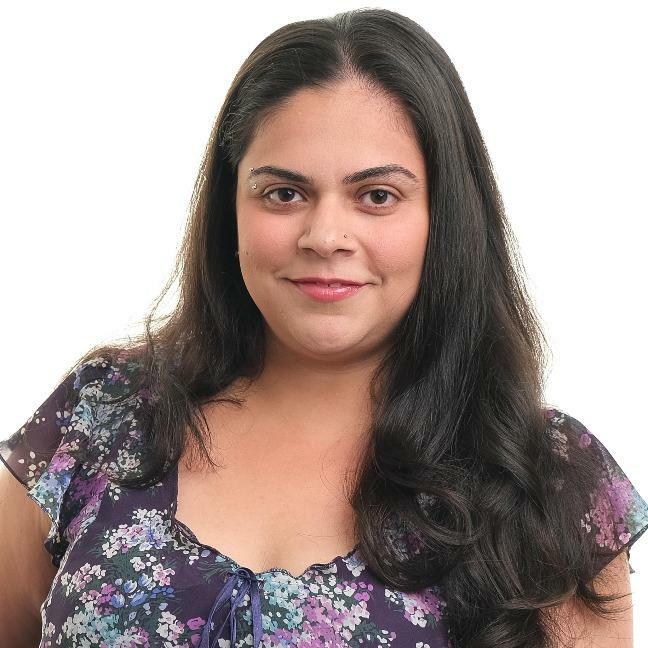
Tushna Commissariat
I am the features editor of Physics World. I pick out the most compelling and topical research across the physical sciences, working with academics and journalists to perfect our long-form articles. I graduated with a BSc in physics from St Xavier’s College, Mumbai, India, before completing a Master’s in science journalism at City University, London. I joined the Physics World team as a news reporter in 2011, and spent the next five years writing about everything from the oriental hornet to antimatter, though I particularly enjoy writing about cosmology and quantum mechanics. I became reviews and careers editor in 2016 (getting to read for a living is a wonderful thing), before taking on the features role in spring 2021. Outside work, my favourite pastimes include travelling, photography, science fiction and fantasy in all its forms, and spending a ridiculous amount of time on the Internet. Find me on Twitter at @tushna42
Speaker: One story, three features: How three journalists tackled the same story for very different publications
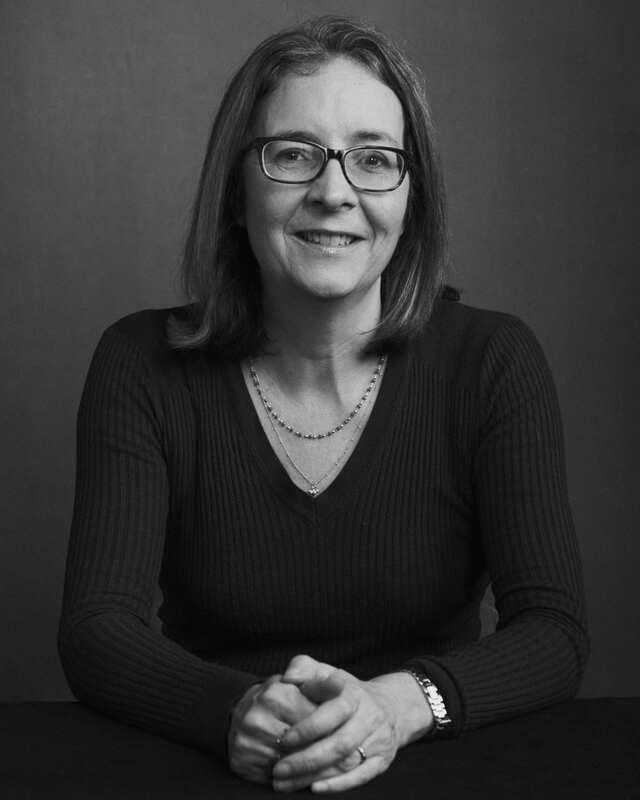
Nicola Cook
Nicola is the Director of Development for BBC Studios Science Unit, an award-winning production team delivering exceptional factual content. Nicola and her development team are adept at unearthing new stories and bringing fresh creative vision to audience favourites. Commissions include premium factual like Earth, Solar System and the Bafta and Emmy-award winning Surgeon’s Cut; documentary features The Anthrax Attacks and Einstein and the Bomb, and popular returnable format The Secret Genius of Modern Life. She also has over 15 years of experience as an award-winning series producer and director.
Speaker: The future of science TV, radio and podcasts
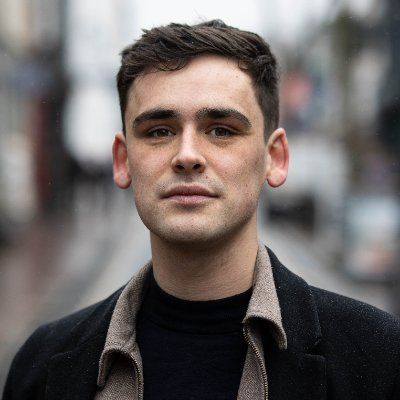
Jody Doherty Cove
Jody Doherty Cove is Head of Editorial AI at Newsquest, leads a team of AI-assisted journalists and helps to oversee the safe integration of AI technologies into Newsquest's 150+ titles across the UK.
Workshop Leader: AI Workshop: Using AI effectively as a journalist
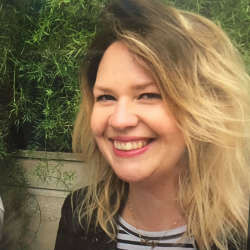
Katy Evans
Katy Evans is an award-winning Editor based in London, UK with over 15 years of experience in online and print publishing working on magazines and news websites. She is the Managing Editor of IFLScience, overseeing editorial content from news articles to features, and even occasionally writes some. She’s also the co-creator and Editor of CURIOUS magazine, has been known to moonlight as a podcast host on IFLScience’s The Big Questions, is a fierce advocate of the Oxford comma, and was named the Association of British Science Writers Editor of the Year 2023.
Speaker: The future of science journalism - how to adapt and thrive
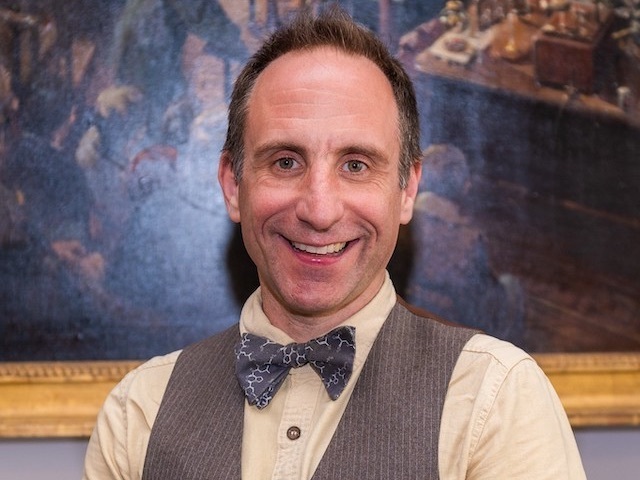
Andy Extance
Andy Extance has been a freelance science writer since 2003, working for employers such as Chemistry World, Nature, Wired, The Observer, and BBC Future. He is also a climate activist and a director of Exeter Community Energy, which erects solar panels and offers advice on how to reduce energy consumption in the local community. He has been chair of the ABSW since 2020.
Chair and Producer: How to improve media impact on 'global boiling'
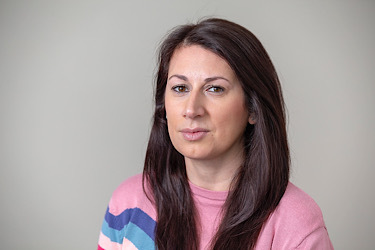
Nada Farhoud
Nada Farhoud is the Mirror's environment editor and columnist. Her award-winning journalism has helped to expose animal cruelty, put the climate crisis at the front of their agenda and uncover Britain’s environmental shame abroad.
Each week she reports on stories from on our doorstep to the far corners of the globe - crunching down complex issues to explain how and why they affect the lives of our readers.
She has been named environment reporter of the year twice at the Society of Editors' Press Awards and also won the prize for science writing at the British Journalism Awards.
Speaker: How to improve media impact on 'global boiling'
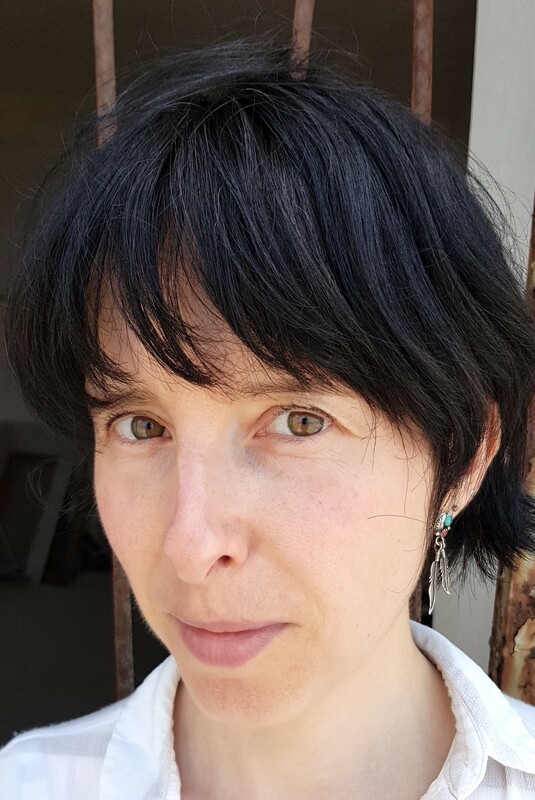
Chrissie Giles
Chrissie Giles has been a writer and editor for over 20 years and is currently deputy editor at the Bureau of Investigative Journalism in London. Previously she worked for Wellcome, one of the world’s largest health foundations, where she was editor of the award-winning longform health and science publication Mosaic. She studied biochemistry at university and completed a Master’s in Science Communication at Imperial College, London.
X: @christinagiles; LinkedIn: @christinagiles
Speaker: How to reconstruct the science media industry
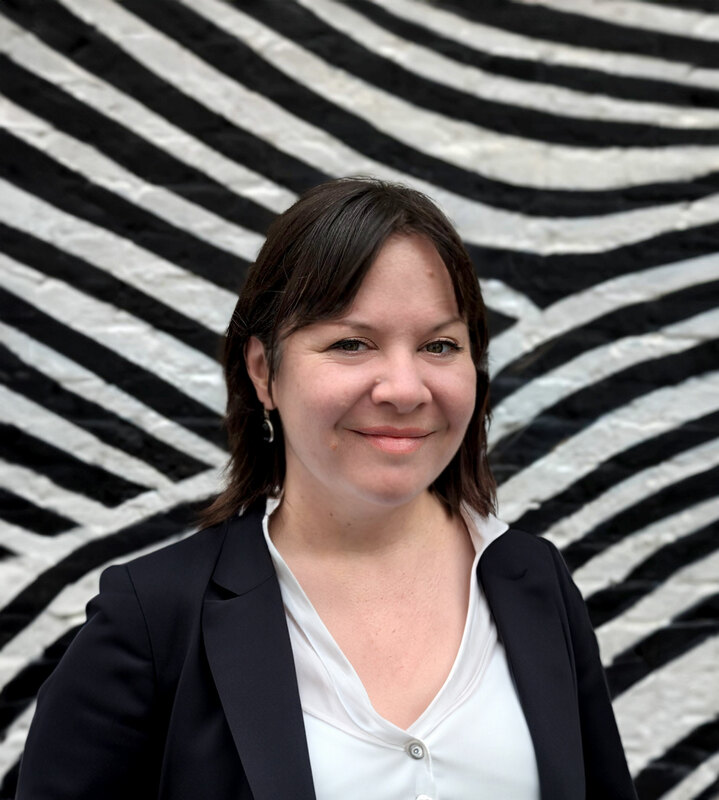
Marianne Guenot
Marianne Guenot is a freelance science reporter with close to a decade of experience writing and editing news and opinion. She was the UK science reporter for Business Insider from 2021 to 2024 and news and opinion editor at The Lancet and Nature Medicine before then. Marianne holds a Ph.D. in immunology and microbiology from the University of Bordeaux and a master's in science communication from Imperial College London. She is based in London, UK, but can often be found travelling across her native France.
Chair and Producer: How to reconstruct the science media industry
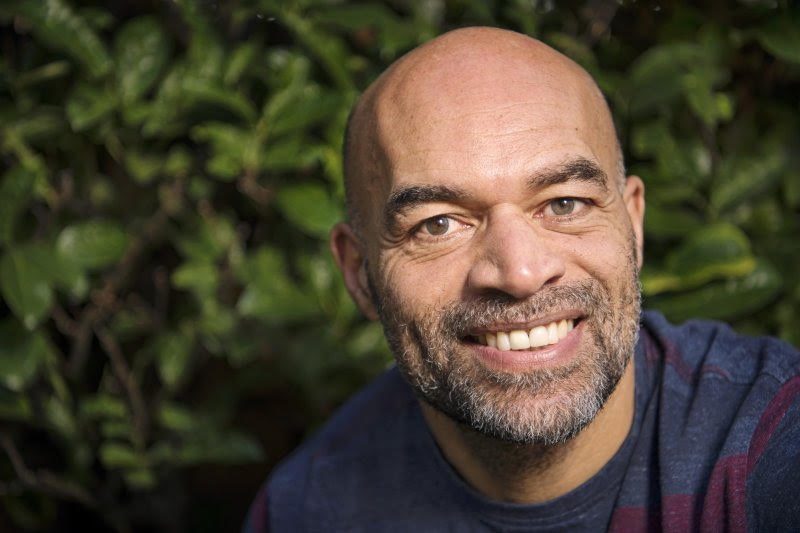
Joseph Harker
Joseph Harker is Senior Editor, Diversity, and Development at The Guardian. He has also been co-lead of the Guardian's Legacies of Enslavement project – which examined the links between the Guardian's founder and transatlantic slavery, issued an apology, and drew up a £10m+ restorative justice action plan.
Joseph also sits on the board of the Society of Editors.
Joseph is a former Guardian Deputy Opinion Editor. And for over 20 years he has run the Guardian's Positive Action Scheme, which offers enhanced work experience to aspiring journalists who are ethnic-minority or have a disability: many have gone on to have successful media careers.
Before joining the Guardian, Joseph was Editor and Publisher of the weekly newspaper Black Briton, and prior to that he was Assistant Editor at The Voice newspaper.
He tweets at @josephharker
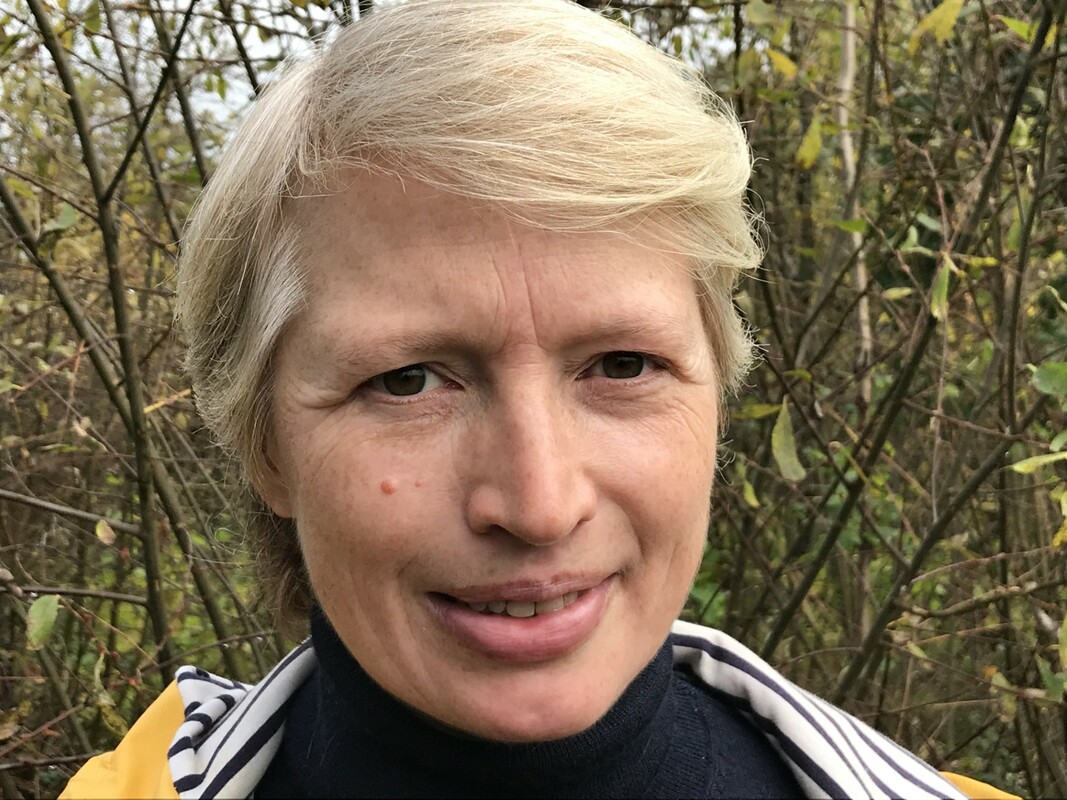
Fiona Harvey
Fiona Harvey is an award-winning journalist who has covered the environment since 2004, first at the Financial Times and subsequently for the Guardian newspaper. She has written extensively on every environmental issue, from air pollution and biodiversity to ocean plastic and climate change. Her assignments have taken her as far afield as the Arctic and the Amazon, and she has attended almost every UNFCCC Cop since 2004, including reporting live from the 2015 Paris conference and the Cop26 summit in Glasgow in 2021. The long list of major world figures she has interviewed includes Antonio Guterres, John Kerry, Ban Ki-moon, Tony Blair, Jose Manuel Barroso, Noam Chomsky, Mikhail Gorbachev and Sir David Attenborough. Among numerous awards and recognitions, she has twice won the Foreign Press Association award for Environment Story of the Year, the British Environment and Media Awards journalist of the year, the 2022 Society of Environmental Journalists outstanding beat reporting award for Cop26, and in 2020 she was named in the Woman’s Hour Power List of 30 top UK women, focusing on Our Planet.
Speaker: How to improve media impact on 'global boiling'
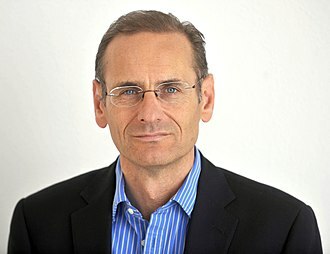
Roger Harrabin
Roger Harrabin is a British journalist who was the BBC's energy and environment analyst until July 2022. He has broadcast on environmental issues since the 1980s and has won many awards in print, TV and radio. Aside from his speciality he has covered many major general news stories. He is an honorary Fellow at St. Catharine's College, Cambridge, a visiting fellow at Green Templeton College, Oxford, an Associate Press Fellow at Wolfson College, Cambridge, and has received an honorary Doctorate of Science from Cranfield University.
Speaker: How to improve media impact on 'global boiling'
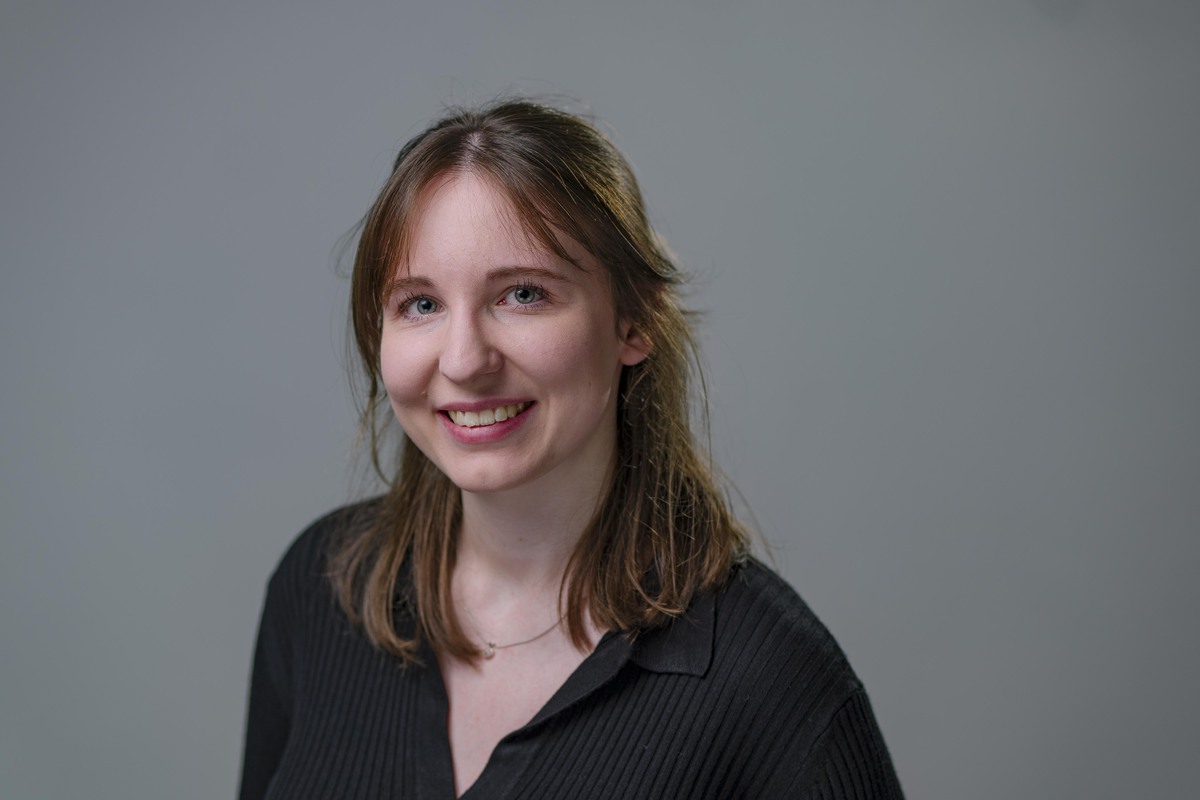
Dr Sylvia Hayes
Sylvia Hayes is a Research Fellow at the Centre for Climate Communication and Data Science (C3DS) at the University of Exeter.
Her research explores climate change communication, social media, visual imagery, photography/photojournalism, and digital media, using qualitative social science methodologies. In 2024, Sylvia was awarded a PhD from the University of Exeter titled “Strikingly Visual: understanding the production of climate journalism in a world of digital news”, which explored the use of imagery and visualisations in online climate change journalism.
She has experience working across the academic and industry divide, collaborating with various climate change journalism organisations, NGOs, and other stakeholders.
Speaker: How to improve media impact on 'global boiling'
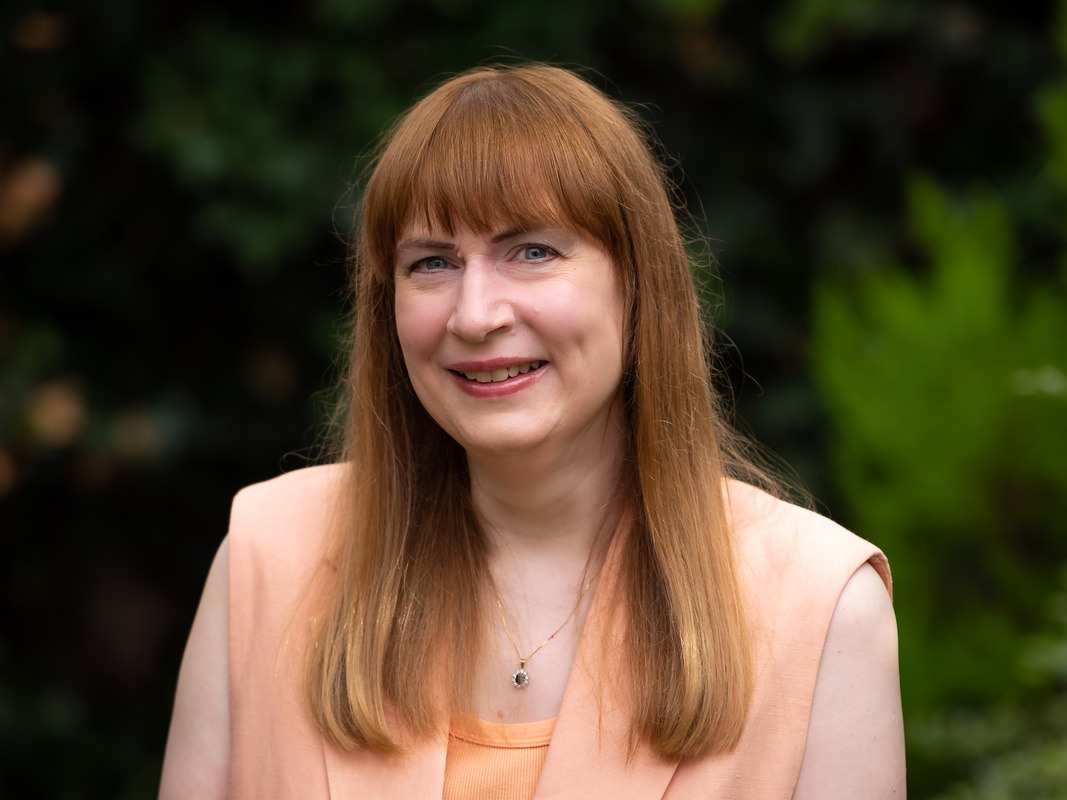
Sharon Ann Holgate
Sharon Ann Holgate is an award-winning freelance science writer and broadcaster, with credits including presenting on the BBC World Service and BBC Radio 4, presenting video podcasts for medical research charity the Myrovlytis Trust, and writing for publications including Science, Science Careers, New Scientist, The Times Literary Supplement, The Times Higher Education Supplement, E&T, Physics World and Materials World. She is also a science communications trainer, and has written brochures, web content, careers leaflets and policy documents for several scientific institutions.
She has a doctorate in physics from the University of Sussex, is a former Young Professional Physicist of the Year, and won the Institute of Physics Lord Kelvin Medal and Prize in 2022 for public engagement in physics.
Sharon Ann was the co-author of DK children’s book The Way Science Works, which was shortlisted for the Aventis Prizes for Science Books Junior Prize. She also devised and wrote the Outside the Research Lab textbook series, and the undergraduate textbook Understanding Solid State Physics. She contributed to the popular science titles 30-Second Quantum Theory and 30-Second Energy, and her latest books are Nuclear Fusion: The Race to Build a Mini-Sun on Earth (2022) and Communicating Science Clearly: A Self-Help Guide For Students and Researchers (2023).
Chair: Pitching science broadcast media: UK vs Germany
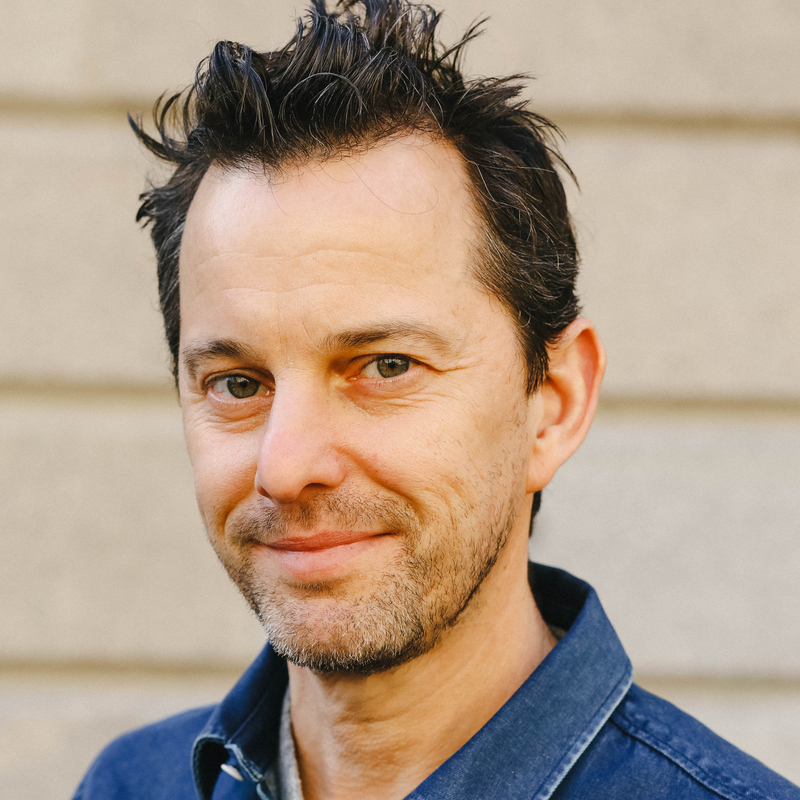
Rowan Hooper
Rowan Hooper is a senior editor at New Scientist magazine and host of the New Scientist Weekly podcast. After gaining a PhD in evolutionary biology, he moved to Japan and worked in a conservation biology lab, then a national newspaper in Tokyo, then Trinity College Dublin in a nanophysics lab. He is the author of two book, Superhuman: Life at the Extremes of Mental and Physical Ability, and How To Spend a Trillion Dollars. His work has been published in the Guardian, Washington Post, The Wall Street Journal, Wired, and the Economist.
Speaker: The future of science TV, radio and podcasts
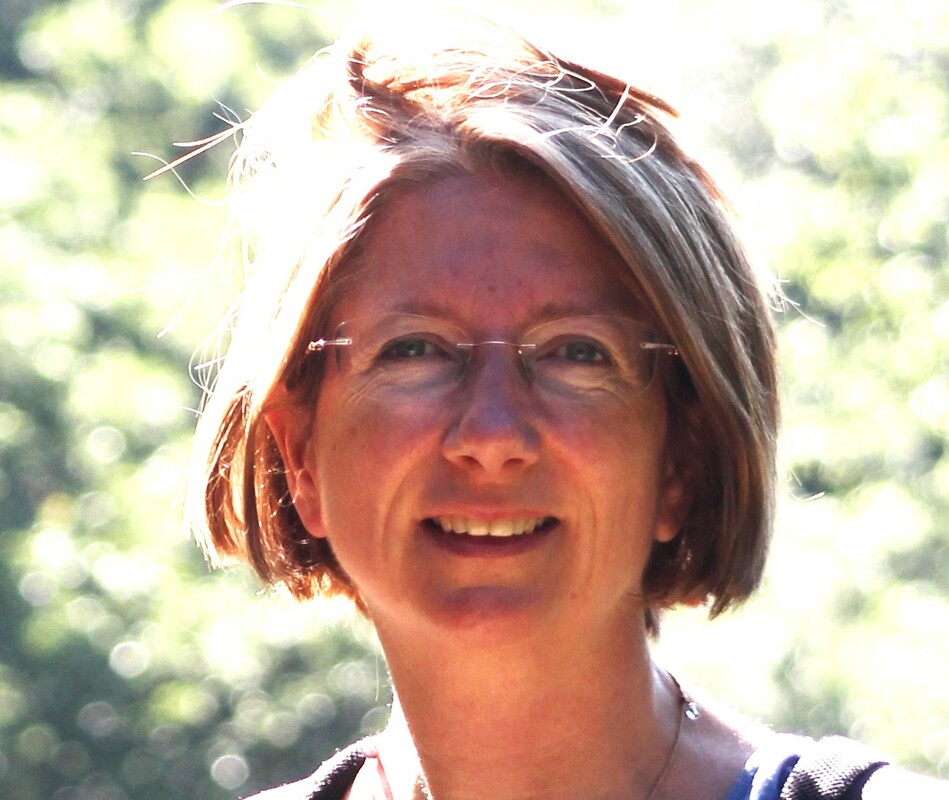
Aislng Irwin
Aisling Irwin is an award-winning science and environmental journalist writing for publications such as Nature and New Scientist. She has also been science correspondent on The Daily Telegraph and news and features editor for SciDev.Net.
Chair and Producer: One story, three features: How three journalists tackled the same story for very different publications.
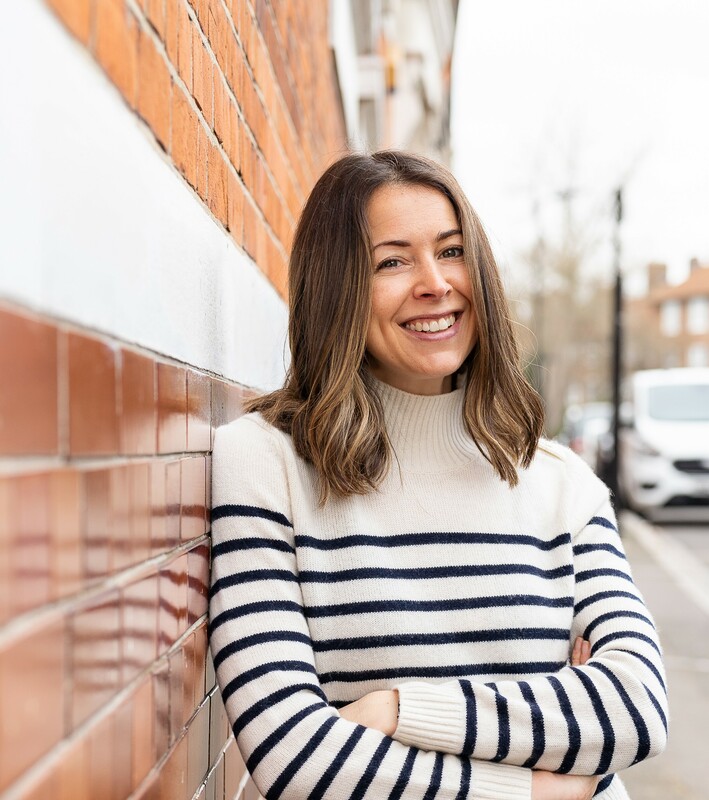
Catherine de Lange
Catherine de Lange is the Editor of New Scientist. She is an award-winning science journalist and author. She studied human sciences at University College London and Science Communication at Imperial, and has been on staff at New Scientist for almost a decade.
During that time she has held a number of positions across the editorial team, including head of features and magazine editor, as well as leading the coverage of the coronavirus pandemic. Her latest book Brain Power: Everything you need to know for a healthy, happy brain covers the everyday ways we can look after our brains as we age. She has also worked as a freelance science journalist; her work has been published in Nature, The Observer, BBC and more.
Speaker: The future of science journalism - how to adapt and thrive
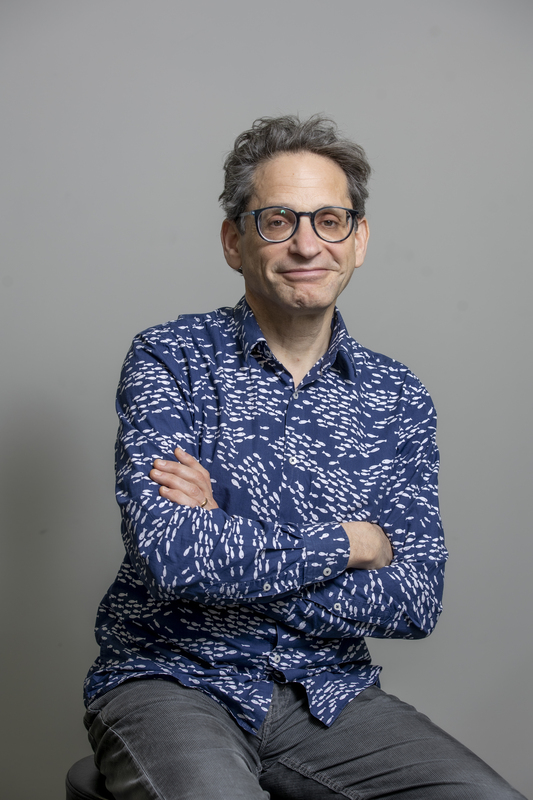
Hugh Levinson
Hugh Levinson is a commissioning editor for factual programming, including ad hoc science documentaries, at BBC Radio 4. He was formerly head of BBC Long-Form Audio, a production department making documentaries, current affairs series and podcasts including More or Less and The Climate Question. In audio he has worked as a reporter, presenter, producer and editor and in TV as a producer - alongside a 3-year stint as a newspaper journalist in Tokyo. He was editor of the BBC’s Reith Lectures for several years, working with lecturers including Stephen Hawking, Stuart Russell and Atul Gawande. For the last 10 years he has run a joint project between the BBC and National Prison Radio producing a monthly show about how prisoners cope with release. When not at work he plays guitar and bass with rock and jazz bands, enjoys running and unfortunately sometimes does card tricks.
Speaker: The future of science TV, radio and podcasts
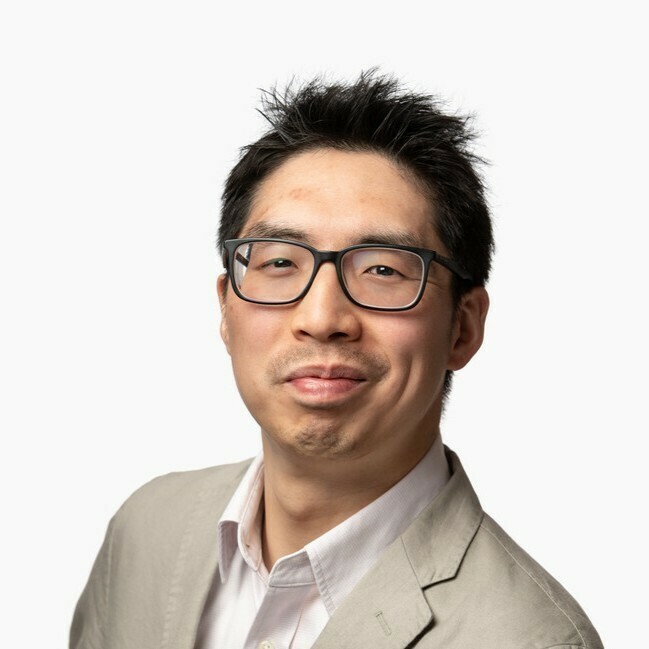
Mun Keat Looi
Mun Keat Looi is a Features Editor and journalist with 15 years of experience in science writing, digital content, long-form features, narrative storytelling, growth/audience engagement and social media. He is the International Features Editor at The BMJ, lectures on journalism at Imperial College London, and is the author of two books, ‘Big Questions in Science: The Quest to Solve the Great Unknowns (2013) and the Geek Guide to Life (2016).
Mun-Keat was awarded the silver Rising Star Award at the 2015 British Media Awards and has written and produced news, features, podcasts, and videos for Quartz, The Guardian, BBC Focus, Chemistry World and others. He is the author of the Association of British Science Writers’ ‘How to become a science writer‘ guide.
Chair: So you want to write a book?
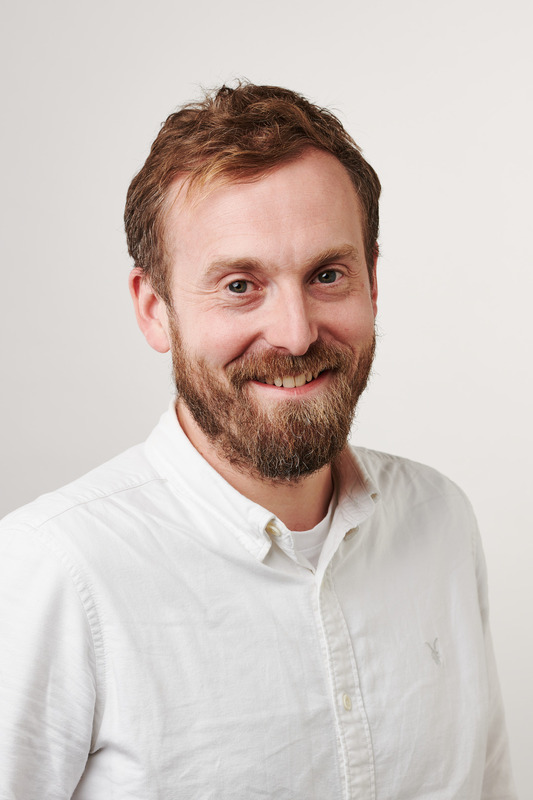
Alexander McNamara
Alexander McNamara is the Editor-in-Chief at Live Science, and has more than 15 years’ experience in publishing at digital titles. More than half of this time has been dedicated to bringing the wonders of science and technology to a wider audience through editor roles at New Scientist and BBC Science Focus, developing new podcasts, newsletters and ground-breaking features along the way. Prior to this, he covered a diverse spectrum of content, ranging from women’s lifestyle, travel, sport and politics, at Hearst and Microsoft. He holds a degree in economics from the University of Sheffield, and before embarking in a career in journalism had a brief stint as an English teacher in the Czech Republic. In his spare time, you can find him with his head buried in the latest science books or tinkering with cool gadgets.
Session: Meet the Editors
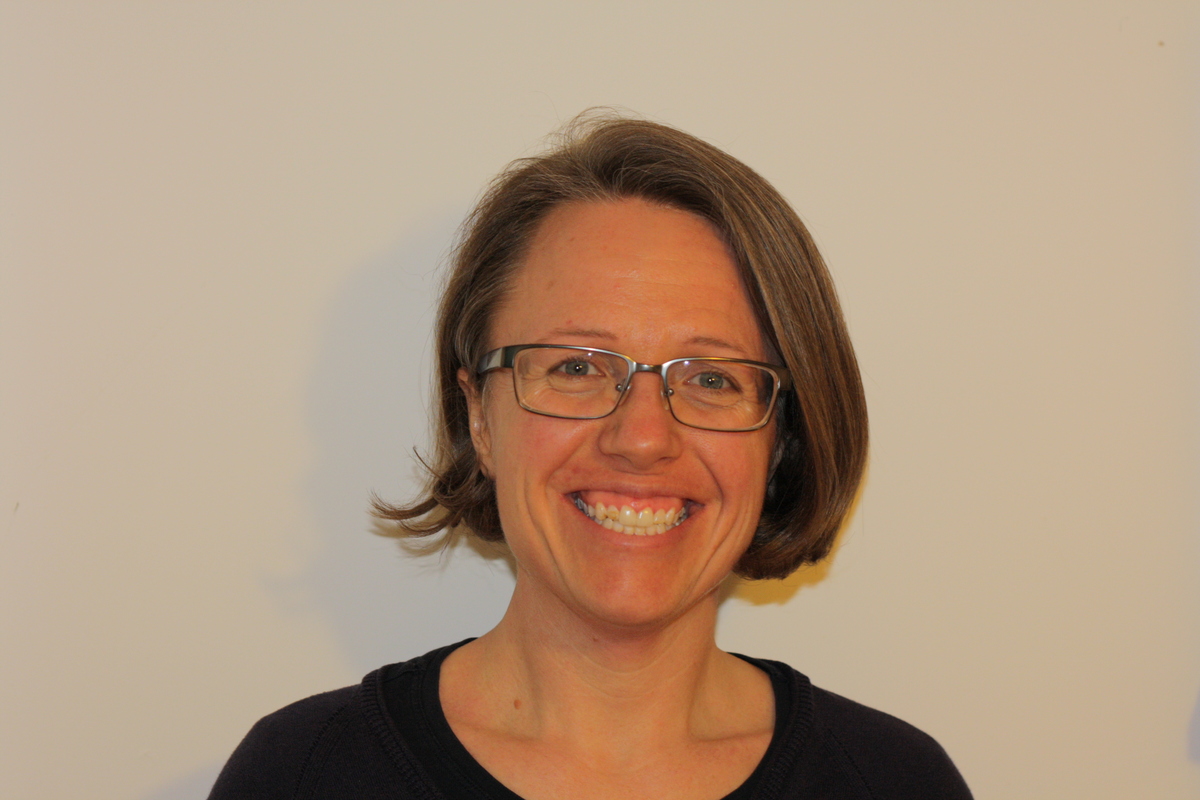
Nina Notman
Nina Notman is a freelance science writer and editor based in Salisbury, UK. She is a recovered bench chemist with nearly 20 years experience reporting on chemistry-related topics. Nina began her science journalism career at Chemistry World and has freelanced for around 12 years. Chemistry World, C&EN and Education in Chemistry are the publications she works for most frequently.
Speaker: One story, three features: How three journalists tackled the same story for very different publications
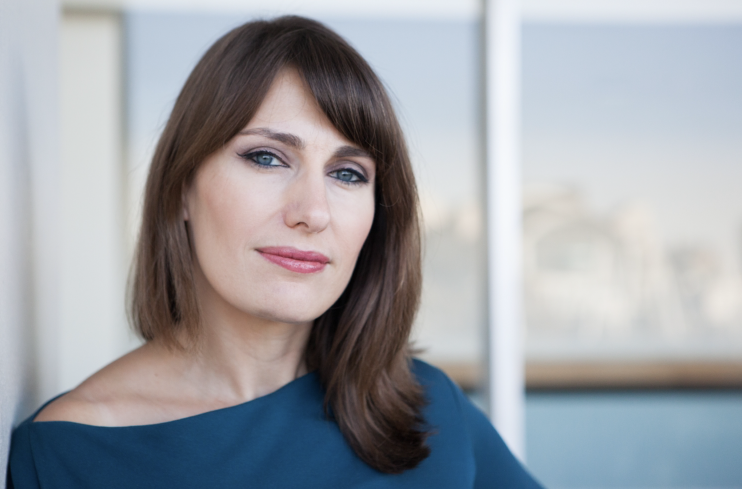
Alex O'Brien
Alex O'Brien is a science writer based in London, UK. Her work has been published by The Times, BBC, Scientific American, New Scientist, The Guardian and others.
In her first non-fiction science book ‘The Truth Detective’ she calls on all of us to regularly interrogate the narratives and information we are given. It’s a book on critical thinking.
She is particularly passionate about teaching critical thinking skills to young people. She spearheaded the UK Young Science Writer Award, which is aimed at students from state-funded schools to help encourage them into a career in STEM.
When she doesn’t write she competes on the global poker circuit and is also Vice-Chair of the ABSW Board.
Speaker: So you want to write a book?
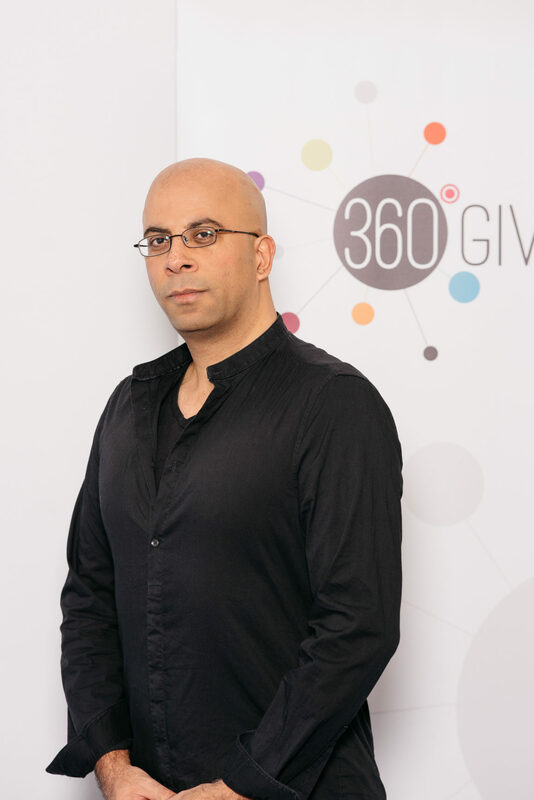
Sameer Padania
Sameer Padania is an internationally trusted
analyst in and advocate for better funding, financing, policy and protections
for public interest media, from the local to the global level. Through
his independent consultancy Macroscope, he works with diverse stakeholders – including
independent media, philanthropy, civil society, businesses, think tanks, &
governments – on strategies, policies and funding mechanisms to defend, support
& grow public interest journalism ecosystems around the world. He
leads the Local News Plans initiative
for the UK's Public Interest News Foundation, which includes the country's
first Local News Fund in
Newry, Northern Ireland, and is on a Visiting Fellowship with the German Marshall Fund's Cities Program. His
reports include the Forum on Information and Democracy’s global report calling
on governments to deliver A New Deal for Journalism,
an overview of media and journalism festivals in
the Global South, and guides on grantmaking to journalism, funding investigative journalism, and developing national funds for
journalism. He writes an independent newsletter on
journalism funding, and from 2019-2022, he wrote the Journalism Funders Forum newsletter. He is a Fellow of the
RSA, and is a trustee of the Indigo Trust, Doc
Society and the Orwell Foundation.
Speaker: How to reconstruct the science media industry
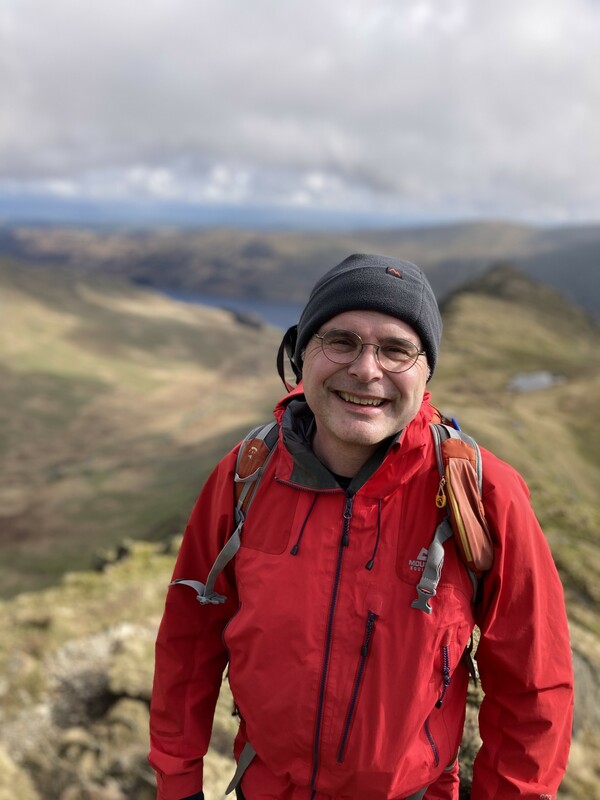
Mark Peplow
Mark Peplow is a science journalist with over 20 years of experience. He has a PhD in chemistry from Imperial College London, and an MSc in science communication from Imperial. During his career, Mark has been a physical sciences reporter at Nature magazine; editor of Chemistry World magazine; and the news editor at Nature. He turned freelance in January 2013 and is a regular contributor to Nature, Chemical & Engineering News, and other publications, writing mostly about chemistry, materials and cleantech.
Speaker: One story, three features: How three journalists tackled the same story for very different publications
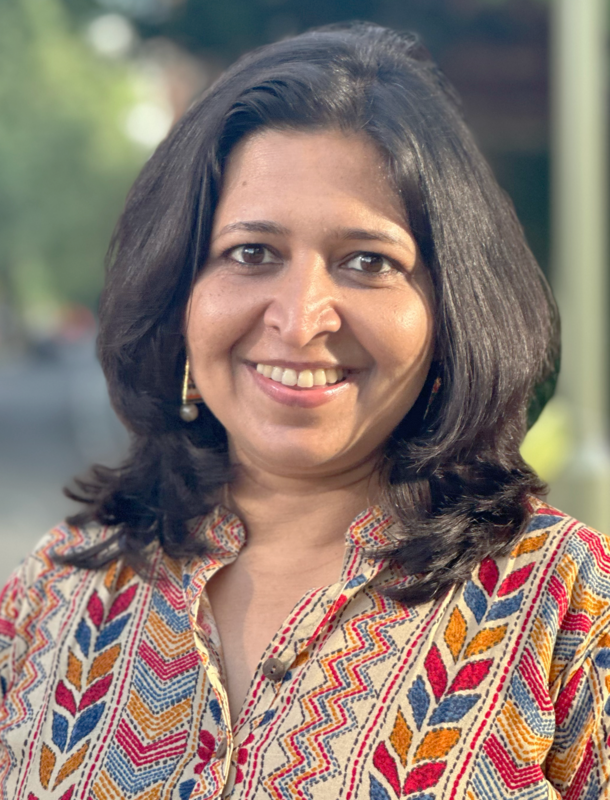
Subhra Priyadarshini
Subhra Priyadarshini is the Chief Editor of Nature India and Nature Portfolio's global supported projects. She uses AI tools to create content for Nature India. Subhra was in the inaugural cohort of the AI for small newsrooms course run by LSE Polis.
Subhra is also the founding President of the Science Journalists Association of India (SJAI). She trains Indian scientists, and science and health journalists through science communication workshops and Fact and Fit (a Google News supported initiative to combat medical misinformation). She is lead faculty at Nature India-Sangath Bhopal’s Health Ethics Communication course. She mentors the World Federation of Science Journalists-supported Himalayan Climate Boot Camp in the Everest region and a climate change fact check training by Google News Initiative.
(She has been a British Chevening scholar, a Robert Bosch fellow, an IREX-UNESCO fellow and a Kavli Prize Media Scholarship awardee. Subhra received the BBC World Service Trust award for her coverage of the ‘Vanishing Islands of Sunderbans’ in the Bay of Bengal and the PANOS South Asia Media Excellence Award for her incisive coverage of climate change issues. She won acclaim in India for her coverage of the Orissa super cyclone in 1999 and the Indian Ocean tsunami in 2004.)
Speaker: AI: Effective tools for science journalists or a source of fear for the future?
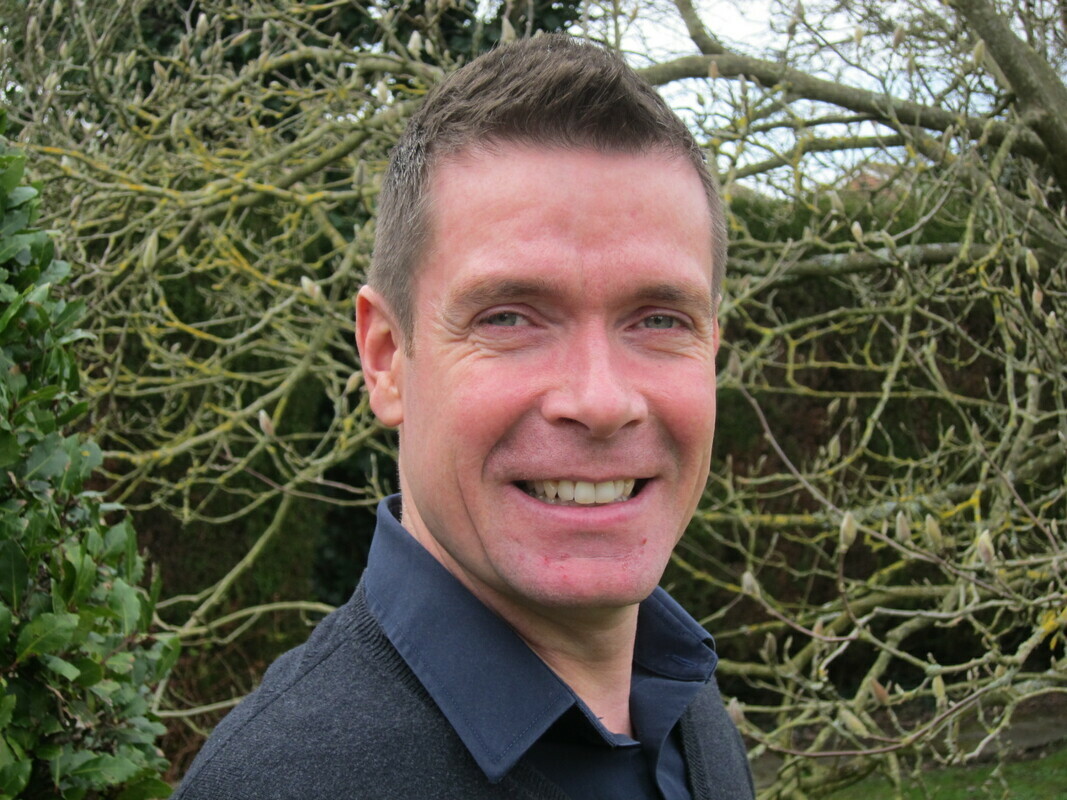
Andy Ridgway
Andy Ridgway is a former Deputy Editor of BBC Science Focus and he continues to write, his work appearing in Focus, New Scientist, The Economist and Men's Health. He is a Senior Lecturer in Science Communication at the University of the West of England in Bristol and programme leader of their internationally renowned MSc in Science Communication. He was UWE's Principal Investigator on the Europe-wide online science communication research project RETHINK, which considered current challenges such as misinformation and trust. Andy has spent several years as a member of the judging team of the Max Perutz Science Writing Award run by the Medical Research Council. Andy is also on the Board of the ABSW.
Producer: The future of science journalism - how to adapt and thrive
Speaker: AI: Effective tools for science journalists or a source of fear for the future?
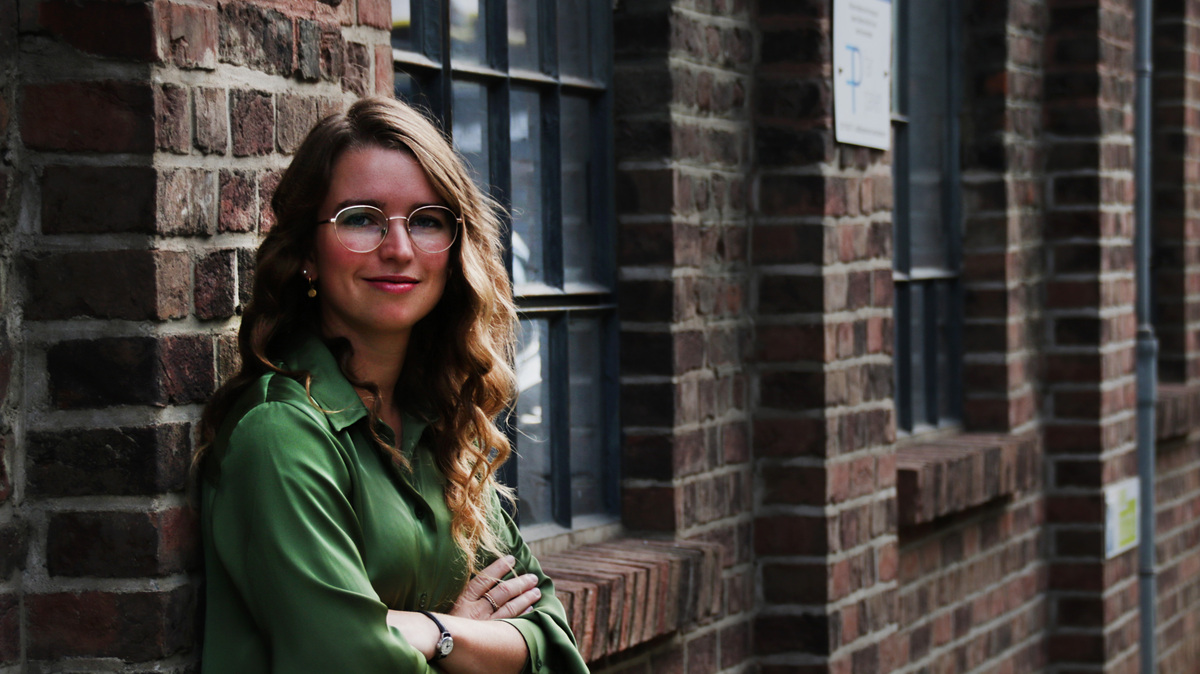
Carolin Riethmüller
Carolin Riethmüller is a German science journalist and author of documentary film. She works for national TV stations such as ZDF and ARTE, as well as for radio stations and newspapers like the internationally known ZEIT. In 2023 she won the Georg-von-Holtzbrinck Science Journalist Award and, together with her team from the YouTube science channel Doktor Whatson, the renommated Grimme Online Award. With her Master of Science in International Crisis Management from the United Nations University, she has a passion for topics where science meets policy decisions and society.
She is a board member of the German science journalist association "Wissenschaftspressekonferenz" and as such trying to make science journalism in Germany fit for the future.
Speaker: Pitching science broadcast media: UK vs Germany
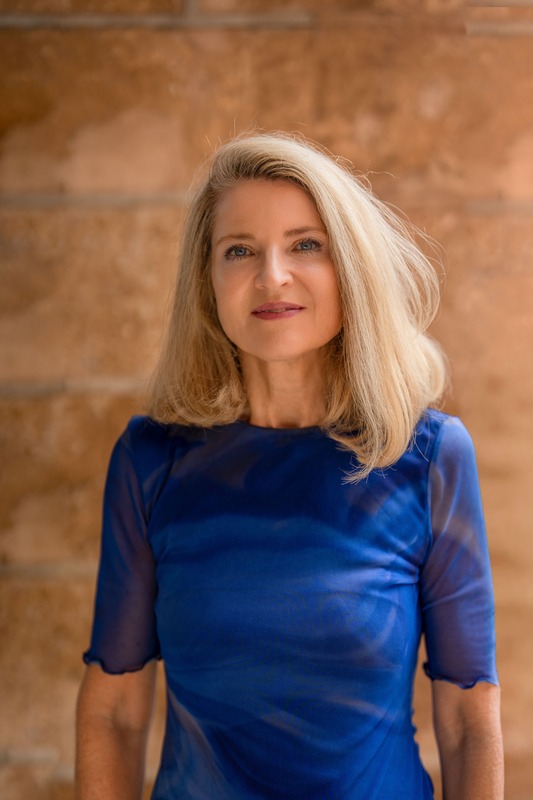
Amelia Vale
Amelia is founder of independent media company Factual Eyes, creating powerful human stories from short journalistic pieces to longer format documentaries, which bring cutting edge science to life. She has produced and directed medical science films, including, “Life saver HIV,” which is about new gene therapy treatments. The film was released in Germany, Austria and Switzerland on prime-time TV by the broadcaster ZDF, for which Amelia received the nomination for Best European Science Journalist 2022. Amelia also produces commercial content for social media platforms.
Amelia started her career as a researcher for the BBC’s investigative programme Panorama and went onto work as an Assistant Producer and Producer on various factual, science, news and current affairs films for Channel 4 and the BBC. Amelia also has written science news and features for broadsheets, including the Sunday Times and the Daily Telegraph, as well as international online platforms. In 2018, she was nominated for a Guild of Health Writers’ Award and for two years she judged the British Society of Cell and Gene Therapy’s writing competition.
Speaker: Pitching science broadcast media: UK vs Germany
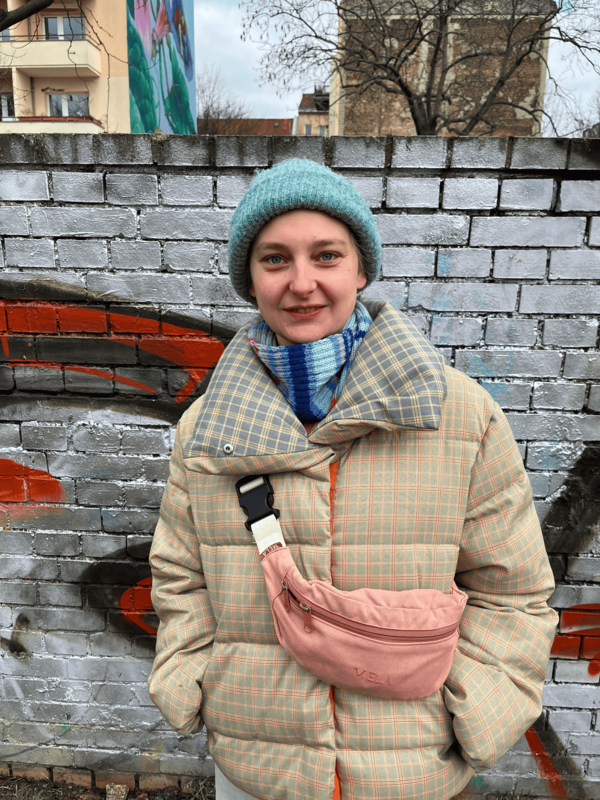
Clara Vuillemin
Clara Vuillemin is a freelance author and co-founder of the digital magazine "Republik." From 2016 to 2022, she was responsible for technology, product, business, campaigns, and strategy, and also served as the president of the board. Previously, she studied mechanical and electrical engineering in Lausanne and Moscow. She currently lives in Berlin.
Speaker: How to reconstruct the science media industry
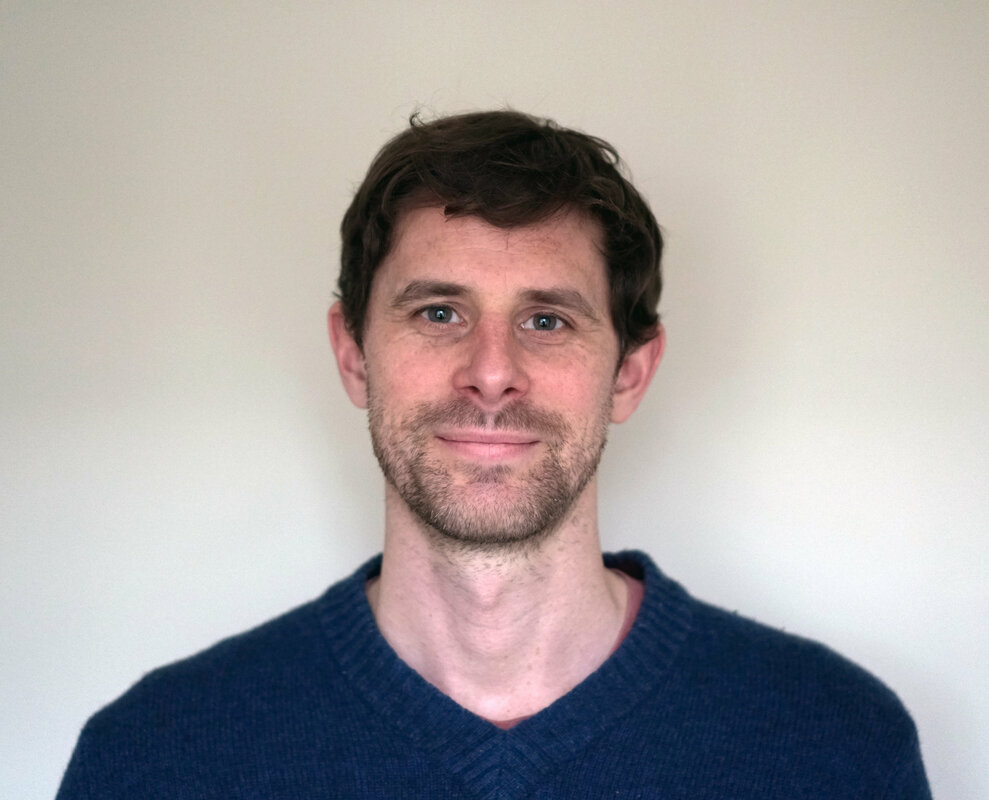
Dominic Walliman
Dominic Walliman is a YouTuber, science writer and former physicist. He produces the YouTube channel Domain of Science where he maps out different areas of human knowledge to his 1.5 million subscribers with hand drawn animated infographics and writes the award winning Professor Astro Cat science books for youngsters. He has a PhD in quantum device physics and used to work in the quantum computing industry.
Speaker: How to reconstruct the science media industry
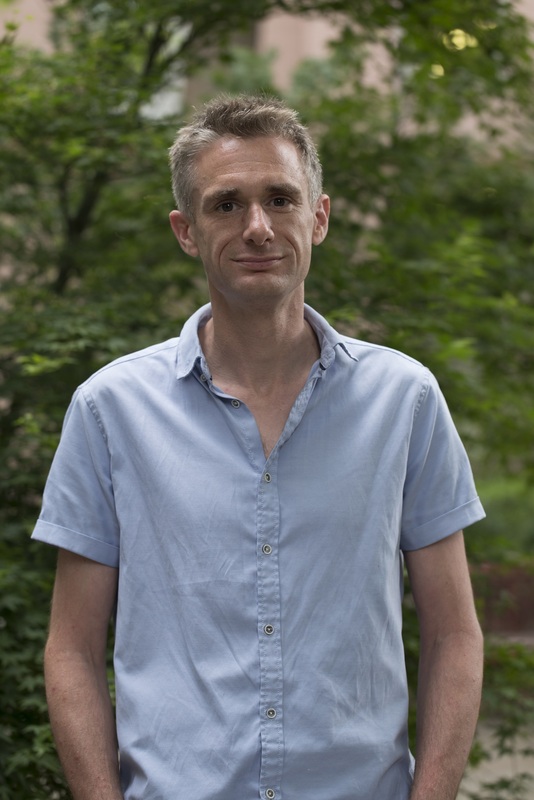
Richard Webb
Richard has been chief magazine editor at Nature since 2022, with overall responsibility for all Nature’s news, features, analysis, opinion and multimedia content. Before that he spent 14 years at New Scientist in various positions including chief features editor and executive editor. He has an MSci degree in physics from the University of London (Imperial College) and a PhD in experimental particle physics from the University of Erlangen-Nuremberg in Germany.
Speaker: The future of science journalism - how to adapt and thrive
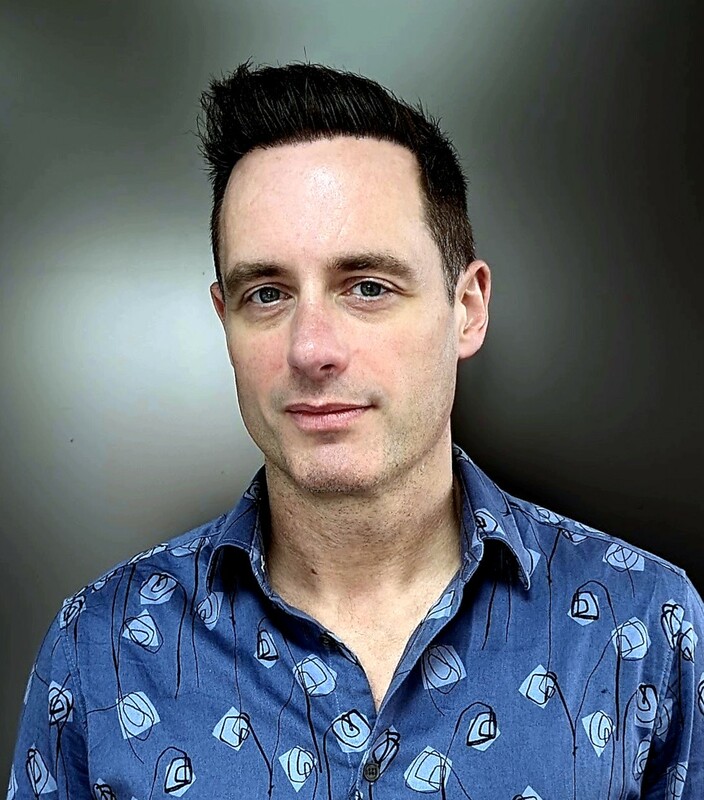
Sean Wheatley
Sean Wheatley has extensive experience in international unscripted television, including in production, content acquisition and distribution. Currently working as an independent television consultant, he has worked in the industry for almost 20 years, including senior roles at Passion Distribution, Sky and Fremantle.
Sean has worked closely with producers and broadcasters across Europe, North America and Australia, including on several UK-German and US- German coproductions. His credits include wildlife, science and history productions.





